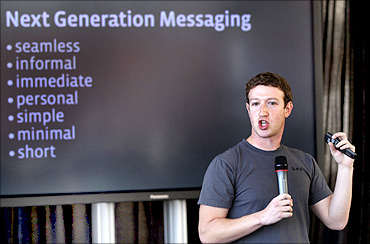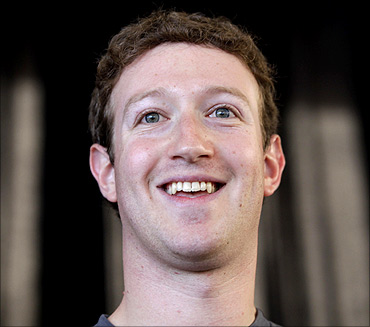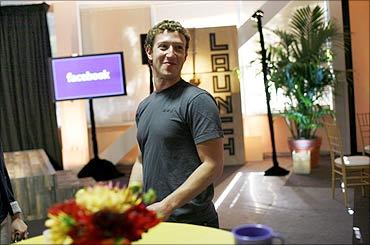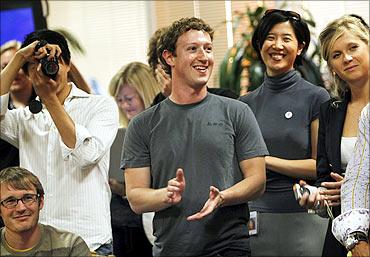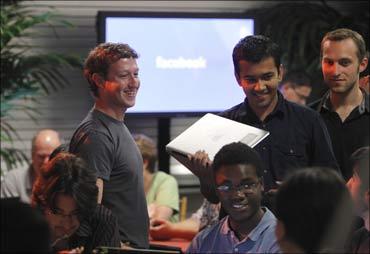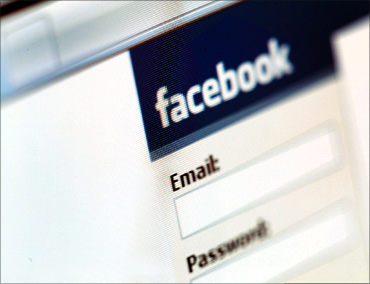 | « Back to article | Print this article |
E-mail to die, says Facebook founder
Last updated on: November 22, 2010 11:01 IST
E-mail will follow the fate of postal letters, which paved the way for e-mails, says Mark Zuckerberg, founder of social networking giant Facebook. Calling it slow and informal, he said the e-mail usage has already declined and the modern world is out of e-mails.
Click NEXT to read on...
E-mail to die, says Facebook founder
Last updated on: November 22, 2010 11:01 IST
Launching the Facebook's new messaging service, which integrates all web and text-based communications and works instantaneously, the service, is expected to take on Gmail. Zuckerberg said 500 million people using Facebook would have access to a a Facebook.com email address.
He said entire conversation, dated even hundred years back will be saved into the user's mailbox.
Click NEXT to read on . . .
E-mail to die, says Facebook founder
Last updated on: November 22, 2010 11:01 IST
The new e-mail system from Facebook is based on instant messaging as well as online chat. Texting, e-mailing and instant messaging will be included as a part of Facebook 'feed'. He also said Facebook messaging will filter spam. Texts, email or instant messages will all come into one 'feed'.
Click NEXT to read on . . .
E-mail to die, says Facebook founder
Last updated on: November 22, 2010 11:01 IST
"It's not email. It handles email... along with all the different ways you want to communicate." Meanwhile, Facebook's new online messaging service makes users of the social networking site more vulnerable to identity theft by cybercriminals, computer security firm Sophos said. Click NEXT to read on . . .
E-mail to die, says Facebook founder
Last updated on: November 22, 2010 11:01 IST
"Users need to realise that these new features increase the attack surface on the Facebook platform, and make personal accounts all the more alluring for cybercriminals to break into," said Sophos senior technology consultant Graham Cluley. Click NEXT to read on . . .
E-mail to die, says Facebook founder
Last updated on: November 22, 2010 11:01 IST
"Facebook accounts will now be linked with many more people in the users' social circles -- opening up new opportunities for identity fraudsters to launch attacks," he said.
